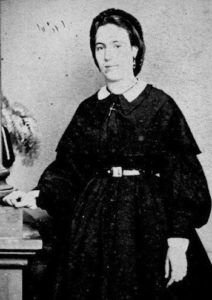
Henriette Delille
*The birth of Henriette Delille in 1813 is celebrated on this date. She was a Black abolitionist and religious leader.
She was a Creole offspring of one of the oldest families of free people of color in New Orleans. The daughter of Jean Baptiste Delille-Sarpy and Pouponne Dias, her mother was a quadroon, and her father's mistress was an aristocrat. Her great-grandmother, Nanette, was a slave. Like most young quadroon women during this time, Henriette was trained from an early age to be acquainted with French literature, to have a refined taste in music, and to be able to dance gracefully. Her mother also taught her nursing skills and how to prepare herbal medicines.
As a teenager, Delille’s lifestyle included attending events in New Orleans to meet members of the upper classes. The quadroon women were expected to become mistresses of the aristocracy. In 1824, Delille pursued a different course. During an event, she was introduced to a French nun named Sister St. Marthe Fontier, the first member of a religious community that Delille had met. She was impressed by the Sister's dedication to God and her vows and acts of charity.
In 1836, along with several other women, Delille established the Sisters of the Presentation, which later became the "Sisters of the Holy Family," the second oldest Catholic religious order for women of color. She had purchased land on Barracks Street with the assistance of the free people of color in New Orleans. The Sisters worked among the poor, the sick, the elderly, and also among slaves. The order founded a school for girls in 1850 and 1860 and opened a hospital for needy Black Orleanians.
Today, the parish continues to contribute to the education of African American youth and the care of the sick and elderly through its work in New Orleans and elsewhere. Henriette Delille died in 1862.
The National Black Catholic Congress
320 Cathedral Street
Baltimore, Maryland, 21201